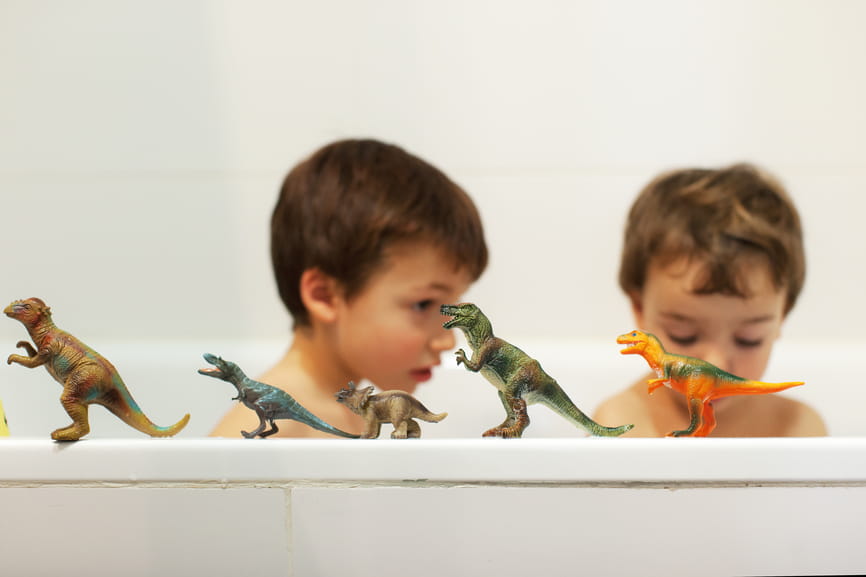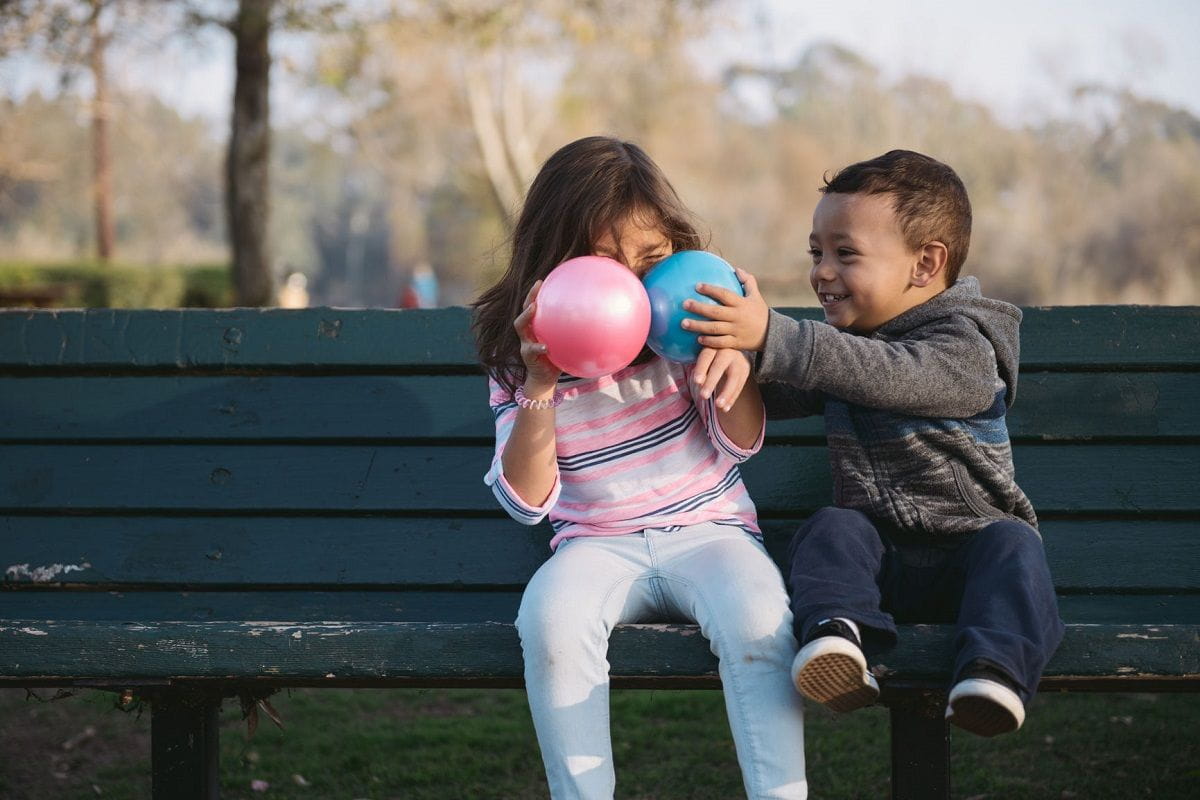How to Teach Children to Share: Social Development for Ages 1 to 3

For a toddler, sharing toys can be a very real challenge. In fact, young children often can’t willingly share until they are developmentally ready, at about age 3 or so.
While (of course) we all want to raise good sharers, trying to force kids to share too early runs counter to their natural social and emotional development. As children are learning to share, they’re also learning to set boundaries with others and how to say “no,” notes parenting writer Heather Shumaker in her book, It’s Ok NOT Share: and Other Renegade Rules for Raising Competent and Compassionate Kids.
Kids are at the very beginning stages of learning to be humans and how to be with other humans, Shumaker points out. When young children don’t share, it’s not because they’re selfish or unkind: It’s just that their social and emotional development is still very much a work in progress.
That said, there’s a lot that parents and caregivers can do to set the stage for sharing when their children are really ready. Even before age three, toddlers are reaching the social and emotional milestones they’ll need to become generous sharers later on. Here’s how to support your budding sharer even before they can ask, “Would you like to play with my trucks?”Everyone Belongs In Our Circle
At KinderCare, we’re committed to building warm, welcoming and supportive classrooms for children of all abilities, backgrounds and experiences.
Find a center near youAge 1-2: Independent but Aware
What They’re Learning: Independence. Your role is to encourage them as they take the initiative to explore the world on their own.
Your Sharing Strategy: Don’t force it. (At this stage, forcing a child to share may shake their confidence in their own abilities, which they’re working really hard at developing.) Instead, pack a few extra toys in your diaper bag and gently redirect children who show interest in a toy your child is using.
Also key? When a child shows you a toy, take the time to engage with them and show interest. While not “sharing” in the classic sense, they are inviting interaction—which builds the foundation for sharing later on.Age 2½: Encourage Sharing

What They’re Learning: Empathy, which is essential to becoming a willing sharer.
Your Sharing Strategy: At this stage, children are more likely to offer to share when they understand how others are feeling.
When you see an opportunity to share, talk to your child about how their friend might be feeling. “Your friend seems upset and she is reaching for your rubber ducky. I think she likes the squeaking sound it makes. Do you think she wants to play with it?”
Even if this doesn’t result in the immediate handing over of the rubber ducky, the quick conversation about noticing a friend’s feelings reinforces that uber-important empathetic understanding. Keep these conversations going! One of Shumaker’s key rules? “All feelings are okay; all behavior isn’t.” The more you talk about feelings—both your child’s and others’—when they’re young, the better the chance you’ll have of raising a kid who wants to hand over that toy, because sharing and playing with others is more fun!A Lifetime Of Confidence Starts Here
Our teachers help every child build the confidence they need to try new things and explore the world around them.
Search for a center near youAge 3: Moving to Cooperation
What They’re Learning: Cooperative play, a.k.a. how to take turns and share.
Your Sharing Strategy: Now you can really begin to build positive sharing habits.
- Give your child the option to keep some special toys, such as favorite new holiday gifts, for themselves. Explain that these toys need to be kept out of sight before a play date or when younger siblings are around. One family uses this mantra, which you can adapt for your own home: “If it’s downstairs, it’s to be shared.”
- Encourage positive sharing during calm playtime before conflict arises. Help children ask each other for a turn.
- Give children the chance to resolve emerging conflicts themselves. “There is only one toy vacuum cleaner and you both really want to use it. What could we do to make everyone happy?”
- If children have a hard time coming up with a solution, help them by providing ideas without solving the problem for them. It’s also a good idea to give the child who is waiting for a turn ways to stay engaged in play. “When Daddy and I vacuum together, one of us moves furniture out of the way while the other one pushes the vacuum.”
- And last, but not least, model sharing! The more your child sees you sharing your cookie with your friend or bringing a meal to someone in need, the more you help your child understand that sharing is caring—and worth it.




.jpg?la=en&h=800&w=1200&hash=799F5BD6E84A71FB0D1C8E657FE7F226)
